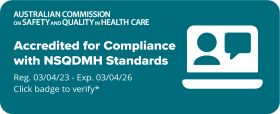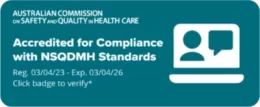Accessibility Tools
- Content scaling 100%
- Font size 100%
- Line height 100%
- Letter spacing 100%
The SANE Blog

Understanding postnatal psychosis
Postnatal psychosis (also known as postpartum or puerperal psychosis) is a rare condition affecting around 1 or 2 women in every thousand.
It's a serious illness that requires urgent treatment.
Most people know very little about postnatal psychosis so it can come as a shock. It can often occur suddenly without a history of mental illness.
Understanding postnatal psychosis can better prepare families in the event of an episode.
Causes
It is unclear what causes postnatal psychosis. However, some theories include:
- A genetic predisposition - There is an increased risk in women with a family history of postnatal psychosis or bipolar disorder.
- Connection between bipolar and postnatal psychosis - Women with a history of bipolar disorder or past experiences of postnatal psychosis are at greater risk.
- Severe sleep deprivation and rapid hormonal changes following childbirth.
- Physical stress of delivery – particularly if there are other medical problems.
Some women will have only a single episode of postnatal psychosis, while others will have an episode with each baby.
For a smaller group, postnatal psychosis may be the first experience of bipolar disorder, or less commonly another psychotic condition.
No one is to blame for postnatal psychosis. It does not occur as a result of anything the parents may have done. Nor is it caused by relationship problems, stress, or the baby being unwanted.
Symptoms
Postnatal psychosis causes significant changes in mood, thought, perception and behaviour. Symptoms can change very quickly from hour to hour and from day to day.
Symptoms usually start within 48 hours to two weeks after giving birth, but may develop up to 12 weeks after the birth or beyond.
Symptoms will vary, but some unusual behaviour to look out for can include a combination of:
- Psychosis - Loss of contact with reality, hearing voices or seeing things that aren't there (hallucinations), having strange beliefs (people are trying to harm the baby).
- Mania - Having lots of energy, being restless and irritable, racing thoughts, talking quickly, difficulty concentrating and sleeping, elevated/excitable mood and extreme sudden mood swings. Feeling strong, powerful, unbeatable, or displaying aggressive or violent behaviour.
- Depression - Opposite to mania. Where depression is severe, a mother may have thoughts of suicide, harming herself or the baby.
If you have concerns or notice any of these symptoms talk to your health professionals or contact the services listed below.
"It was a rollercoaster ride through the darkest places I never wanted to visit."
Mel Maginnity
Treatment
If you think the symptoms of postpartum psychosis are present, you need to act quickly. There's a number of options available.
Emergency support
Postnatal psychosis is a psychiatric emergency and immediate treatment is required for the safety of both mother and baby. If you are concerned about your partner or a loved one you can:
- Call 000 if there is concern for the immediate safety of the mother or baby
- Transport her to the nearest emergency department
- A Crisis Assessment team (CAT team) can be accessed in a mental health crisis
- Contact her GP
- Contact PANDA (Perinatal Anxiety & Depression Australia) – 1300 726 306.
When seeking help, ensure you tell reception or health care staff about unusual or dangerous behaviour, that there is a very young baby and you think it's postnatal psychosis.
Hospitalisation
During the very early stages of an episode, a woman will generally be admitted to hospital. This allows health professionals to monitor and provide treatment and ongoing support in a safe place. The length of time a woman remains in hospital and what medication she is prescribed will vary depending on the individual.
Medication
Medication is essential for treating and managing postnatal psychosis. Different medications may be used including antipsychotics, mood stabilisers and antidepressants.
It's important to talk through the benefits, risks and potential side-effects. Some medications are avoided or used with caution if a woman is breastfeeding.
If there is a history of postnatal psychosis and you're planning getting pregnant, ensure medication is discussed and reviewed during pregnancy and following birth.
Always speak with treating doctors before changing or stopping medication. Never stop medication suddenly.
Psychological treatments
As the prescribed medication begins to work and recovery progresses, psychological therapies can help the mother and family develop coping strategies and ways come to terms with what happened. Mother-infant therapy can also help strengthen bonds with the baby.
Electroconvulsive therapy (ECT)
Electroconvulsive therapy (ECT) is a specialist treatment that can be used safely to treat postnatal psychosis. Particularly where the episode is very severe, as it is the fastest and most effective treatment to get on the road to recovery.
Recovering from the most severe symptoms of postpartum psychosis generally takes between two weeks to three months depending on the individual, severity of the symptoms and response to treatment. The time taken for a full recovery can be much longer and range from between six to twelve months.
Information and support
Postnatal psychosis can be scary and overwhelming. But there are services that can help. If you, or someone you love, needs help please contact one of the following organisations:
- PANDA – 1300 726 306
- Australian Psychological Society - 1800 333 497 (to locate a psychologist)
- SANE Forums – for 24 hour moderated, peer to peer support.
Related Posts
By accepting you will be accessing a service provided by a third-party external to https://www.sane.org/










